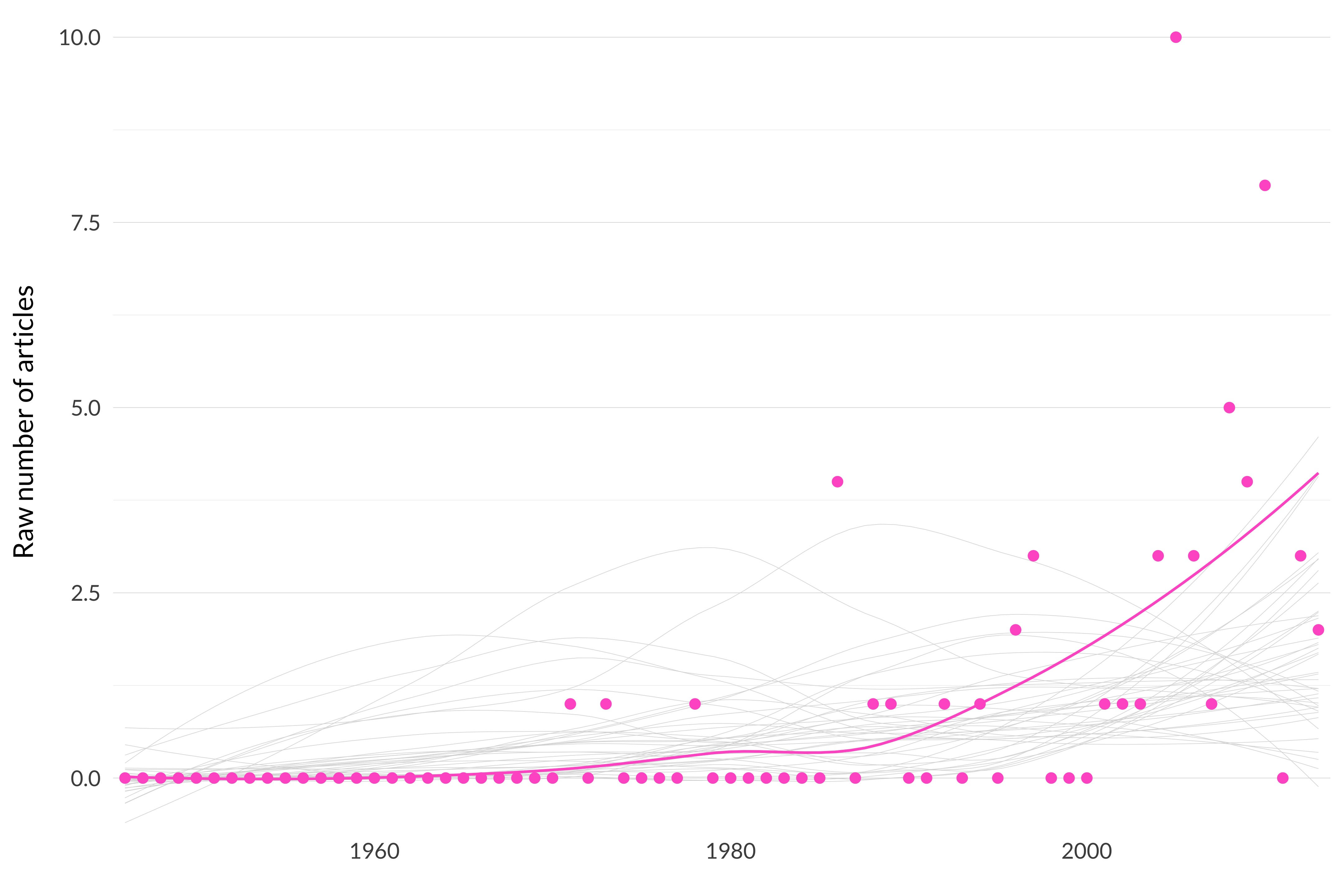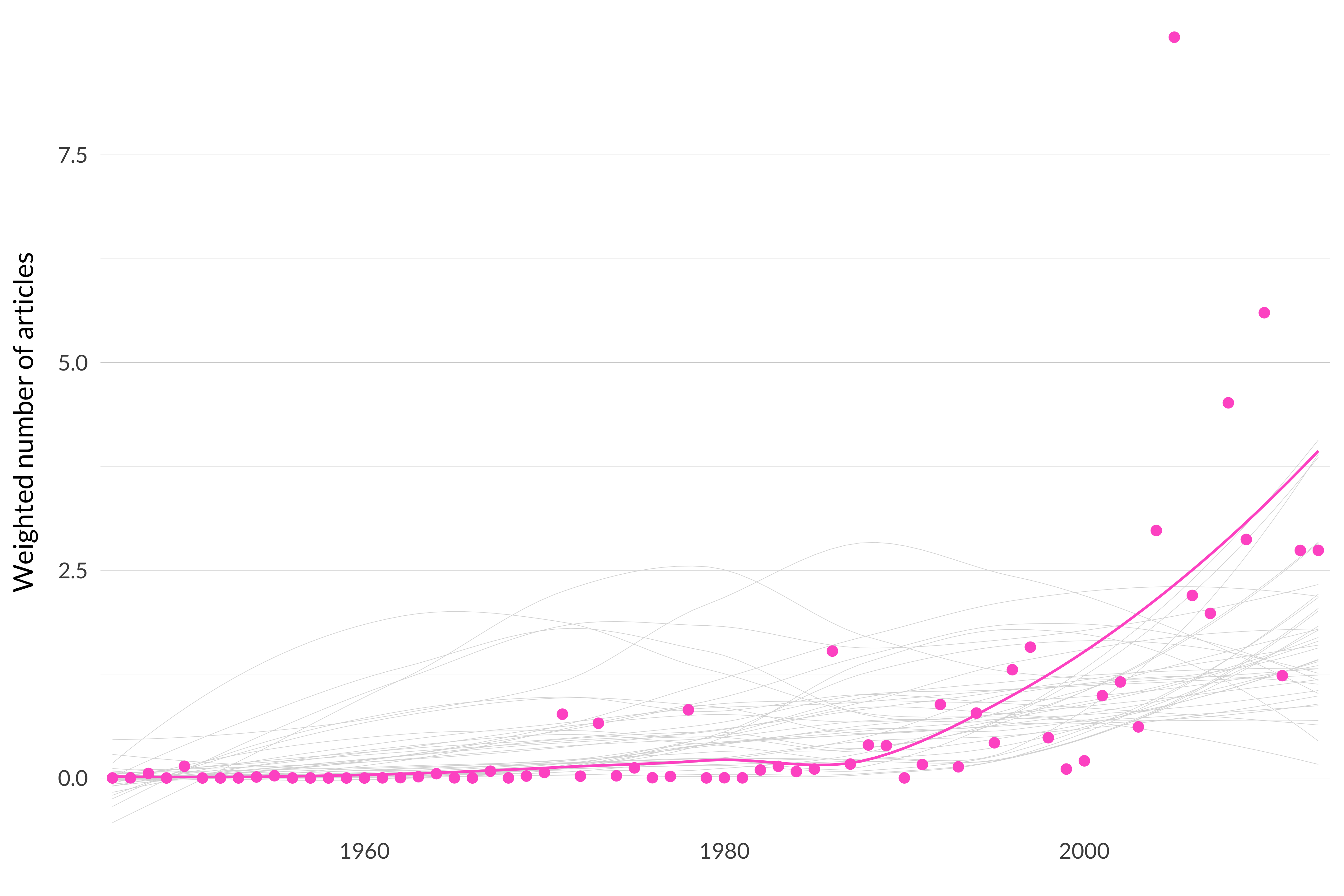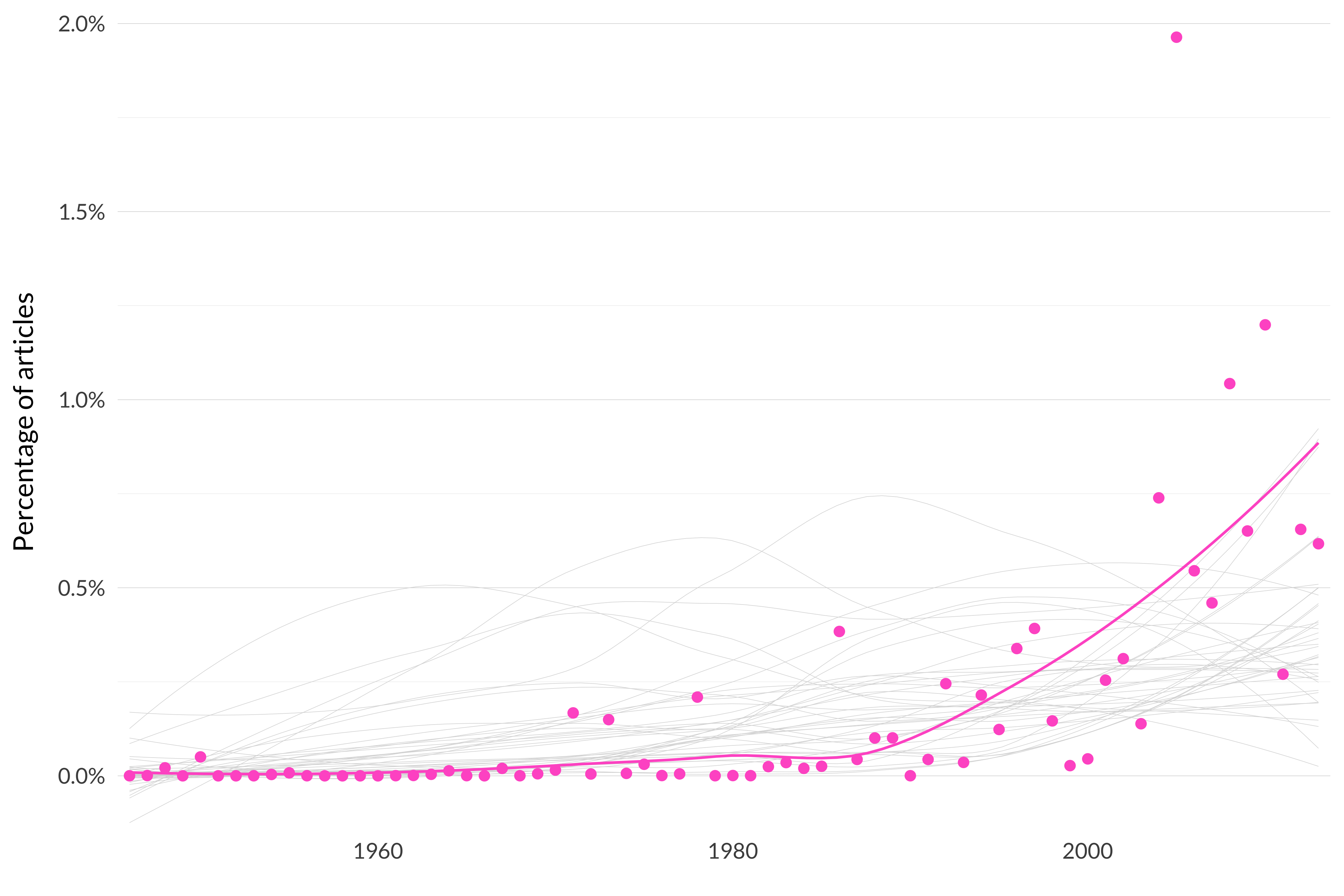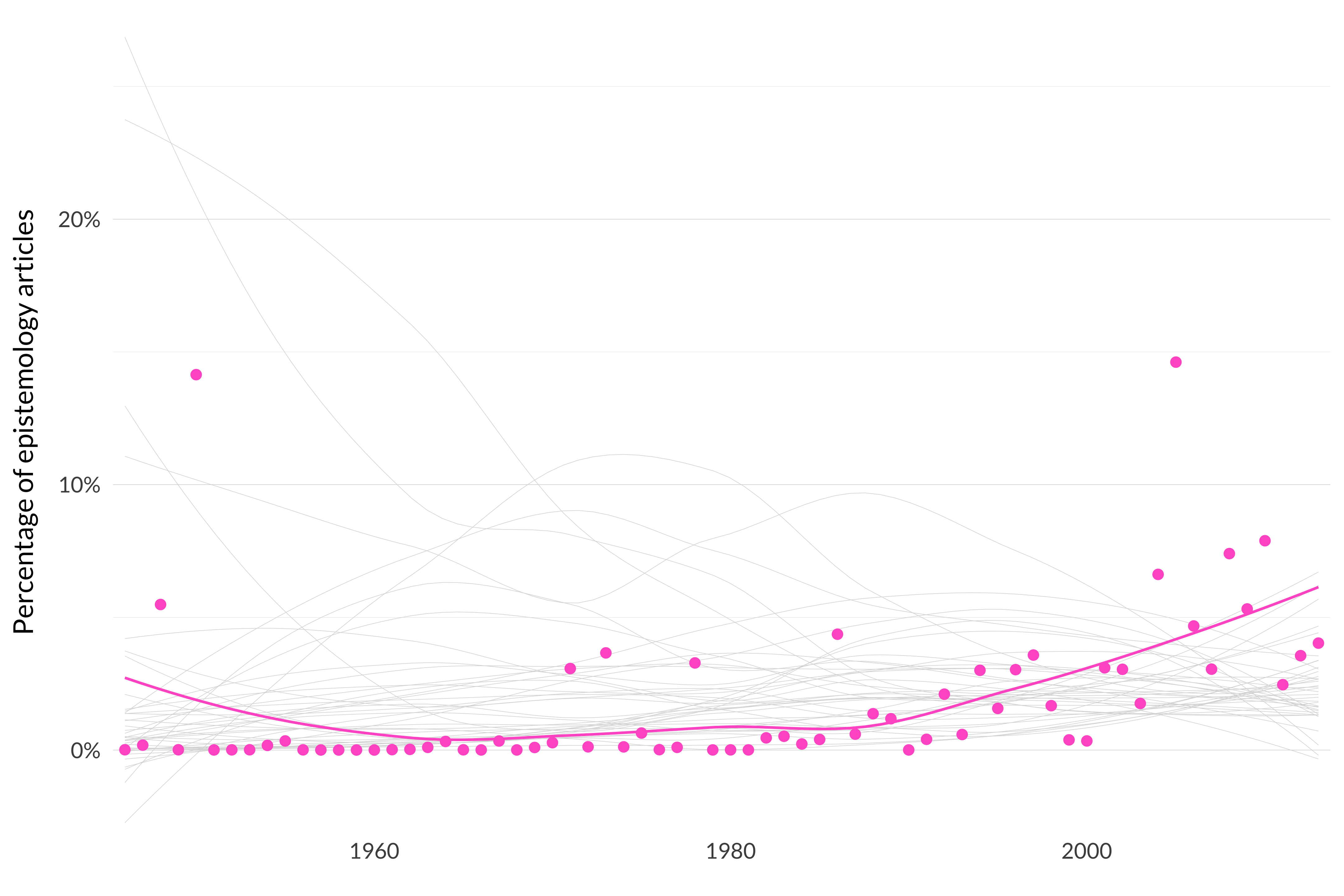6.36 Contextualism
Keywords: contextualist, contextualism, bank, stakes, contexts, sensitive, standards, derose, sensitivity, speakers, context, intuitions, low, hawthorne, cohen
Number of articles: 58
Weighted number of articles: 50.76487

Figure 6.149: Raw number of articles in topic 36, contextualism.

Figure 6.150: Weighted number of articles in topic 36, contextualism.

Figure 6.151: Percentage of philosophy articles in topic 36, contextualism.

Figure 6.152: Percentage of epistemology articles in topic 36, contextualism.
Characteristic Articles
- John Greco, 2008, “What’s Wrong with Contextualism?,” The Philosophical Quarterly 58:416–36.
- Keith Derose, 2006, ““Bamboozled by Our Own Words”: Semantic Blindness and Some Arguments Against Contextualism,” Philosophy and Phenomenological Research 73:316–38.
- Peter Baumann, 2008, “Contextualism and the Factivity Problem,” Philosophy and Phenomenological Research 76:580–602.
- Finn Spicer, 2006, “Epistemic Intuitions and Epistemic Contextualism,” Philosophy and Phenomenological Research 72:366–85.
- Peter Baumann, 2010, “The Case for Contexualism,” Analysis 70:149–60.
- Michael Brady and Duncan Pritchard, 2005, “Epistemological Contextualism: Problems and Prospects,” The Philosophical Quarterly 55:161–71.
- Anthony Brueckner, 2005, “Contextualism, Hawthorne’s Invariantism and Third-Person Cases,” The Philosophical Quarterly 55:315–8.
- Keith Derose, 2005, “The Ordinary Language Basis for Contextualism, and the New Invariantism,” The Philosophical Quarterly 55:172–98.
- Keith Derose, 2004, “The Problem with Subject-Sensitive Invariantism,” Philosophy and Phenomenological Research 68:346–50.
- Leonid Tarasov, 2013, “Contextualism and Weird Knowledge,” The Philosophical Quarterly 63:565–75.
Highly Cited Articles
- Stacey Swain, Joshua Alexander and Jonathan M. Weinberg, 2008, “The Instability of Philosophical Intuitions: Running Hot and Cold on Truetemp,” Philosophy and Phenomenological Research 76:138–55. (0.4806843)
- Stephen Schiffer, 1996, “Contextualist Solutions to Scepticism,” Proceedings of the Aristotelian Society 96:317–33. (0.4252945)
- John Greco, 2008, “What’s Wrong with Contextualism?,” The Philosophical Quarterly 58:416–36. (0.8494442)
- Allan Hazlett, 2010, “The Myth of Factive Verbs,” Philosophy and Phenomenological Research 80:497–522. (0.3473187)
- Keith Derose, 2005, “The Ordinary Language Basis for Contextualism, and the New Invariantism,” The Philosophical Quarterly 55:172–98. (0.9907929)
- Jennifer Nagel, 2010, “Knowledge Ascriptions and the Psychological Consequences of Thinking About Error,” The Philosophical Quarterly 60:286–306. (0.8107585)